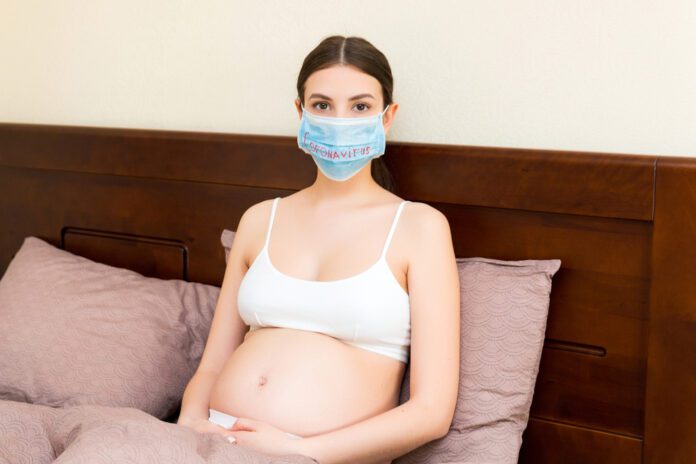Vitamin D is one of the fat-soluble vitamins that is primarily responsible for proper growth and development of bones. By increasing the absorption of calcium and phosphorus from the intestines, Vitamin D helps in the maintenance of a healthy bone structure. Calcium has many important functions in the body including muscle contraction, neurotransmission, and blood coagulation. The role of Vitamin D in the regulation of the immune system is also well understood. Vitamin D is also a known cofactor of tryptophan hydroxylase (TPH), an enzyme that is responsible for the synthesis of the neurotransmitter serotonin. Its deficiency is linked to neurotic psychiatric illnesses like depression. It is estimated that Vitamin D may have a role in the modulation of more than a thousand genes. New research also indicates a relationship between Vitamin D, COVID-19, and pregnancy.
Vitamin D receptors are present in the cells of the bone marrow, brain, breast and immune cells. Calcitriol is the active form of vitamin D. Adequate exposure to the sun (1/2 to 1 hour in 1 day) is expected to maintain adequate serum levels of vitamin D (30 to 60 ng/ml). Individuals of the African American community are at a greater risk of vitamin D deficiency due to deficient absorption of UV light owing to the excess of melanin in their skin. Due to inadequate sun exposure, around 40 to 50 per cent of the total population of the world is supposedly vitamin D deficient.
Prevalence Of Low Vitamin D Levels?
Many new studies have shown an association between low levels of vitamin D and recurrent infections. In a cross-sectional study involving 19000 individuals from 1988 to 1994, those with lower vitamin D levels were more likely to self-report upper respiratory infections. It has also been linked to higher incidences of influenza and other upper respiratory infections. Cod liver oil, fish oil, Omega-3 supplements and sun exposure were used as treatments for tuberculosis before the advent of the antibiotic era. [1] The role of vitamin D in protecting against infections is therefore historically known. This fact becomes more relevant in the current scenario of COVID-19. Research has indicated that people having sub-optimal levels of vitamin D are more susceptible to the virus. A higher proportion of deaths among overweight and BAME (Black, Asians and Minor Ethnicity) in the United Kingdom has been speculated to be due to low levels of vitamin D. In the United States, individuals with suboptimal vitamin D levels have faced worse outcomes from COVID-19 including increased duration of hospital stay, ICU admission and death. The Department of Health in the UK has increased public health messaging about the importance of vitamin D supplementation. Scientists are advocating for the fortification of foods such as milk and bread with vitamin D.
Relationship Between Vitamin D, COVID-19, And Pregnancy
It is essential that pregnant women have adequate levels of vitamin D. Calcium is required for healthy bone development of babies. Adequate serum levels of vitamin D are associated with a lesser incidence of pregnancy-induced hypertension and preeclampsia. Vitamin D also decreases the risk of gestational diabetes, preterm birth, and birth infections. Overall vitamin D ensures lesser pregnancy complications and better pregnancy outcomes. Pregnant women are advised to consume around 4000 IU of vitamin D daily which is almost 10 times the recommended dose for healthy adults.
As pregnancy itself is an immunocompromised state, pregnant women are at an increased risk of infections including COVID-19. Pregnant women who had COVID-19 infections faced worse outcomes of both the infection itself and of pregnancy. General precautions like social distancing and the use of masks are recommended for pregnant women. It is recommended that they make regular antenatal visits according to the COVID guidelines of their health centre. Most of the approved vaccines are considered safe in pregnant women. Current evidence shows that breast milk is not likely to transfer the virus to the newborn. It is recommended that infected women feed their breast milk to their baby by hand expression or by pumping.
Dos And Don’ts Of Being Pregnant During COVID-19
There is no sufficient evidence of vertical transmission of COVID-19. Not much is known about the effects of maternal COVID-19 infection in the newborn. Most newborns who have COVID-19 infection show no or mild symptoms and recover uneventfully. Masks and shields are not recommended for babies under two years of age due to risk of respiratory distress. Adequate levels of vitamin D in the mother ensures the same for the newborn. It may help to protect mothers from COVID-19 infections and the same applies to the baby.
Adequate sun exposure, cod liver oil and dairy products are very rich sources of vitamin D. About 400 IU of vitamin D supplementation is recommended for healthy individuals having normal levels of serum vitamin D. Those with sub-optimal levels should take higher doses depending on their levels. Supplementation of vitamin D has not shown any adverse effects even in doses of up to 10000 IU. Its role in protection against infections including COVID-19 has been well proven. Pregnant women should also take vitamin D supplementation for better pregnancy outcomes during COVID-19.
References:





